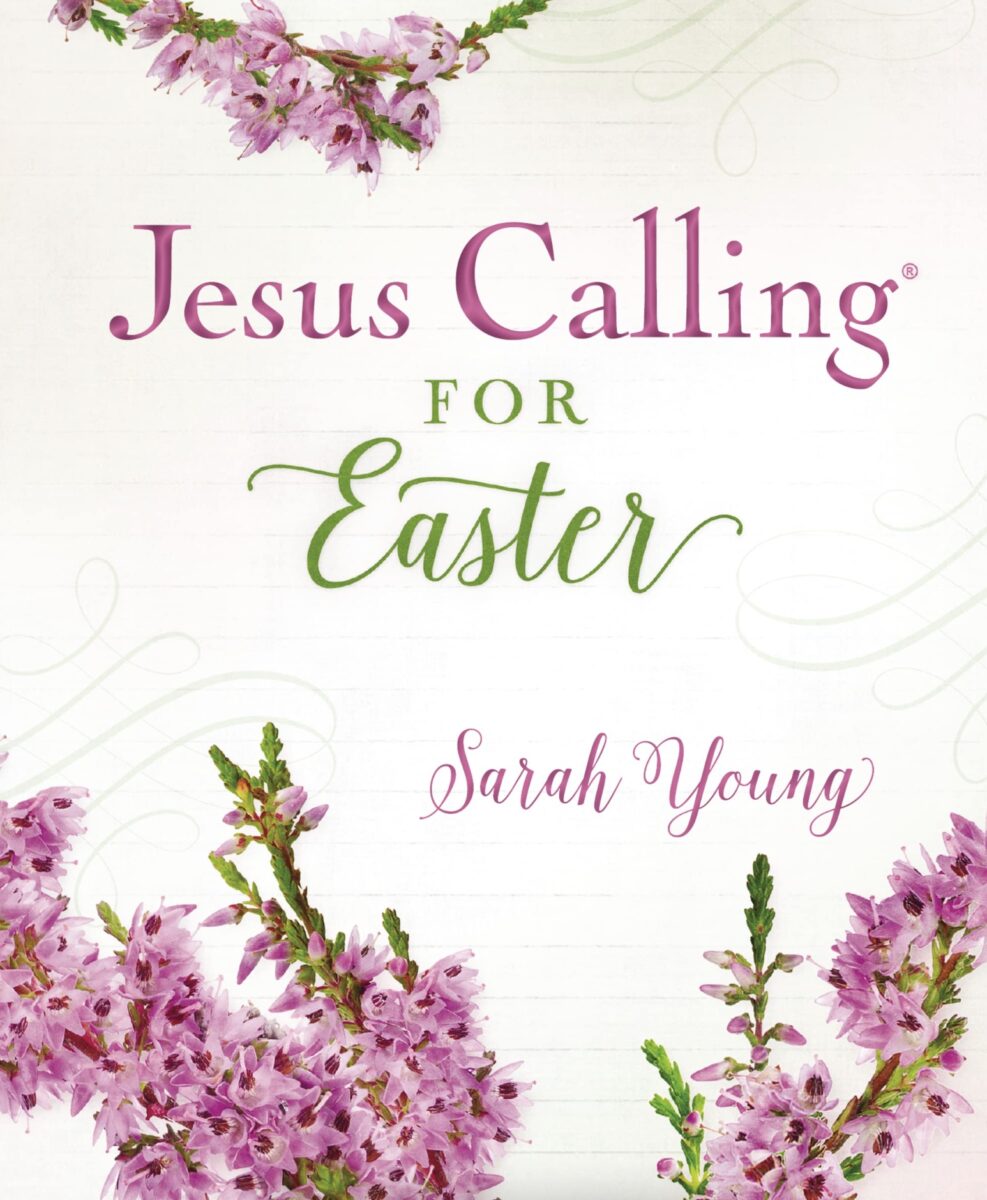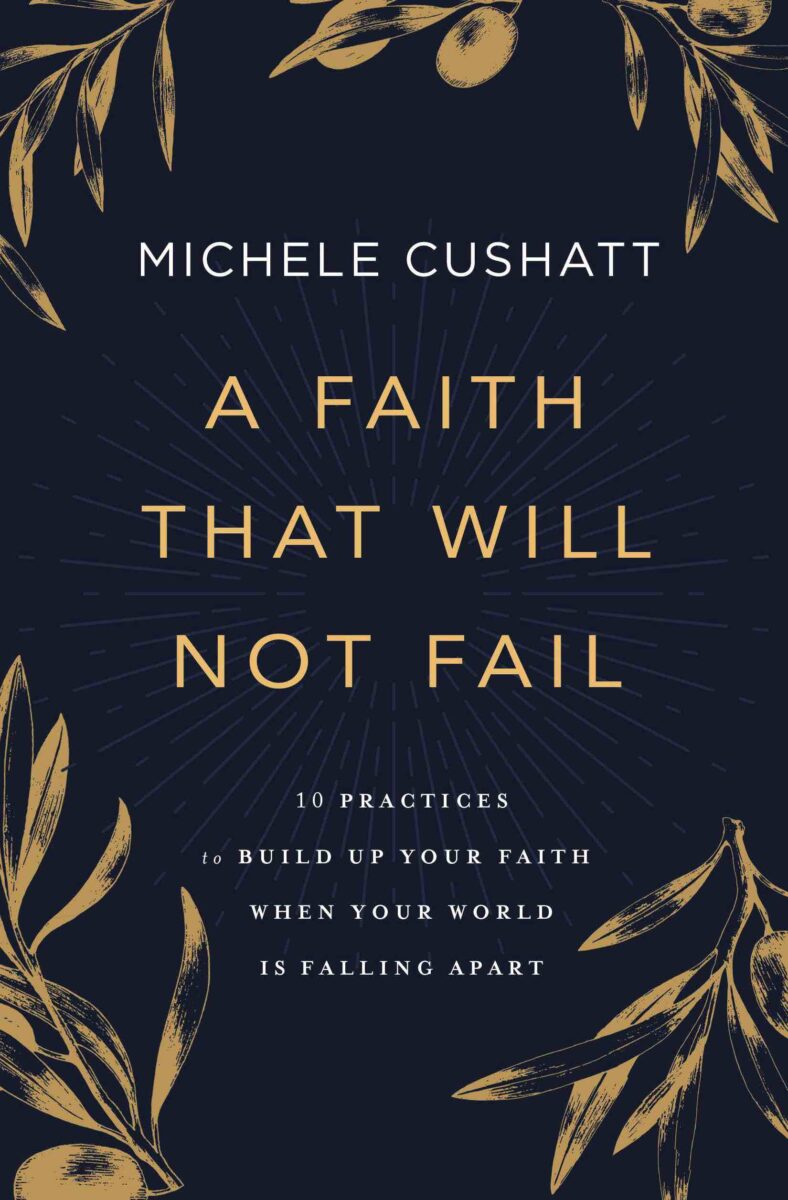Give and Get Joy By Asking for Help: Nazareth and Michele Cushatt
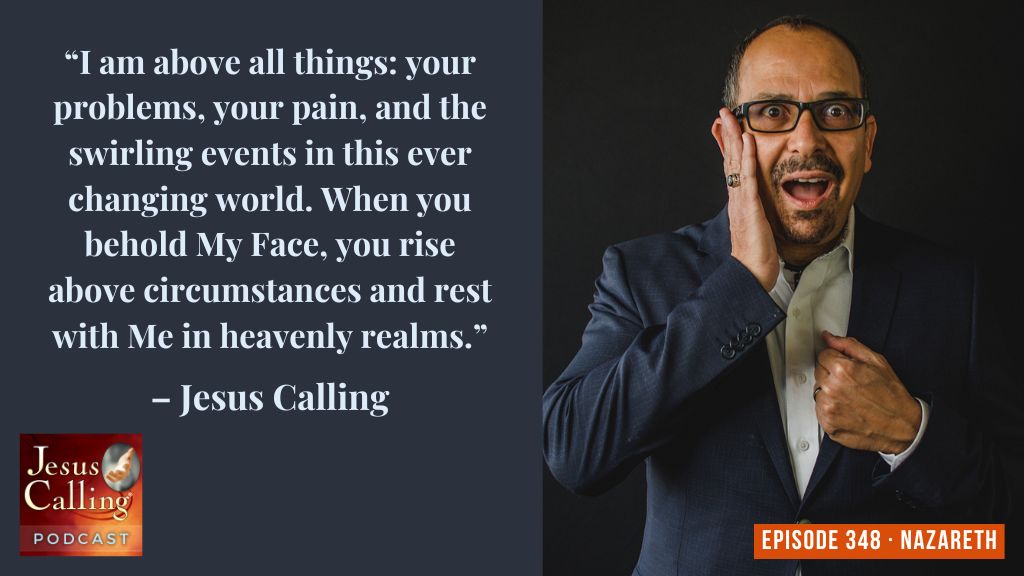
Nazareth: One time I was doing an event and after the show, this really old lady came up to me and she goes, “Honey, I’ve fought with cancer for five years. I’ve been taking chemo. In the last two hours, I forgot about my pain. I forgot about my cancer. And I just laughed and it feels so good.” I’m like, “This is exactly why I’m doing this.”
Give and Get Joy By Asking for Help: Nazareth and Michele Cushatt – Episode #348
Narrator: Welcome to the Jesus Calling Podcast. Are you one of those people who finds it hard to ask others for help? Though we might find ourselves facing things alone or maybe we just want to tough it out and not burden anyone else with our problems, we should remember that when we ask for help—including help from God—we honor those in whom we place our trust—giving them a chance to joyfully give of themselves to support us in whatever we’re facing.
Our guests this week each had moments in their life where they had to face that they couldn’t rely only on their own strength, they needed help to overcome the problems in front of them. Nazareth is a Christian comedian who actively looks to bring laughter to places all over the world that need it most. Michele Cushatt is an author and speaker who knows the lonely places of suffering and is passionate about sharing ways to find joy on the other side.
Let’s start with Nazareth’s story.
Nazareth: My name is Nazareth. I was born in the Holy Land in Nazareth, Israel, and grew up in Kuwait and moved to the U.S. I’m a professional comedian and I use my comedy to encourage believers, but also to turn people’s hearts to Christ.
When I was three years old, my family moved to Kuwait to find a better living. I grew up in a nominal Greek Orthodox Christian family. My parents only went to church probably Easter or Christmas. That’s the kind of upbringing I had—good family, good morals—but Christ was not in the picture at all.
Making His Way As An Immigrant in America
At the age of nineteen, I moved to Toledo, Ohio, to study electrical engineering. And I was approved to go to either New York and Los Angeles. But my parents thought, Oh, those are big cities. You can be hooked on drugs and trouble and have a bad life. So we’re going to send you to Toledo, Ohio. So I went to Toledo, started going to school. My father lost his work in Kuwait, so I was without an income. All of a sudden, I’m in a strange country with no money and hardly speak the language. And I ended up starting a business.
Don’t ask me how, an opportunity opened to where I can have an empty building right on the lake. And what did I want to do? I did bait and tackle. I became good at it. I opened fish cleaning houses. Thank God for America where you can do whatever you want, even if you hardly speak the language. And I was able to do good business while going to school.
My parents moved in with me. They went from the desert of Kuwait to the cold of Toledo. They couldn’t handle it, so I ended up finishing everything in Ohio and then moving to Southern California.
For three years, I worked seven days a week, no vacation, no sick days, three jobs. I worked for two Subway stores, and I worked for a baby furniture store because baby furniture was lighter than the regular furniture, so it was easy to deliver. It was really a hard three years. But I knew I had to do that. I needed to provide.
Finding His Purpose By Running a Marathon
And then I don’t know what happened, but I decided to run a marathon. I was smoking a pack of cigarettes a day, and it wasn’t healthy. But I said, “You know what? I’m going to run the marathon, 26.2 miles. I’ll do two miles this year, two miles next year, two miles after. Eventually, one day, I’ll finish it.”
I filed for the forms and then they asked me to come in the day before the marathon. They do a carb load, so you come to the civic center and you eat all the carbs you can. And who was coming to my table? Muhammad Ali, the boxer who we watched when we were little. I was like, Wow. And he just grabbed my arm, squeezed it, and he said, “You’re going to finish this, aren’t you?” And you go, “Yes, sir, I will.” And I went home with all that, like, Wait, I promised to finish the race. I don’t know what I’m going to do. So the next morning I smoked my last cigarette. Sounds like a country song. But I did.
I looked at what the other runners were doing, like they’re rubbing Vaseline on their muscles and all that. I started running. And then after two miles, I’m like, “That’s my limit.” And when you’re running with like 10,000 people, you can just keep going. And I kept running, get to the five miles. They said, “Are you sure you want to do this?” And then my lungs were very upset at me. I got to the ten miles and people say it’s downhill from there. So I started running and then I got to the twenty-two mile and this homeless lady, she goes, “Oh, honey, you can’t quit now. The finish line is there. You gotta finish it.” And I kept going and going. And then I got to the finish line and I sat there.
And I sat there and I’m going, Wow, I didn’t know I can do that. I didn’t know I can push myself to do that. And I asked myself the question, What do I want to do in life that if I never get paid for it, I will still do it to the best of my ability? I loved seeing people laugh. So I said, “This is what I want to do.” And that’s how it all started.
“I’m going, Wow, I didn’t know I can push myself to do that. And I asked myself the question, What do I want to do in life that if I never get paid for it, I will still do it to the best of my ability? I loved seeing people laugh. So I said, ‘This is what I want to do.’” – Nazareth
The next day, I signed up at a comedy club in the valley in Los Angeles called L.A. Cabaret. I signed up at 7:00 in the evening. By the time I went on stage, it was midnight. There were nine people, mostly drunk, and two of them fell off their chairs laughing at my jokes. And I knew right there and then, This is it. This is what I want to do.
Quitting Comedy at the Peak of His Career
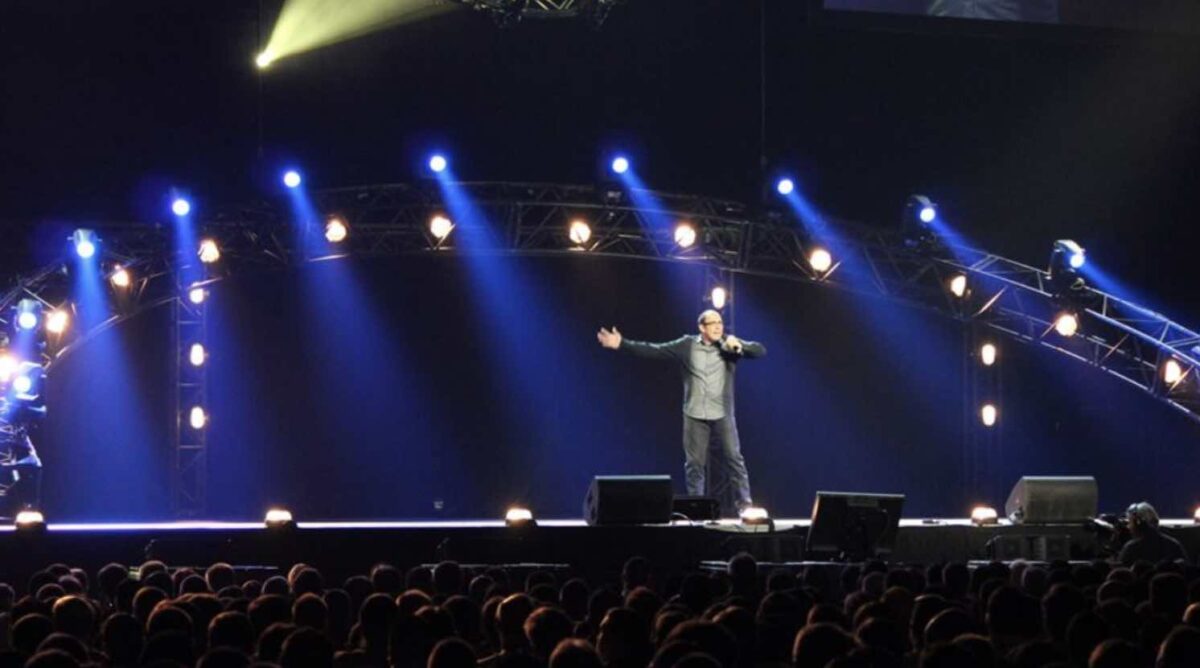
I did that open mic night and it went great. The next day I went to the Comedy Store, then I went to The Improv and my career started picking up fast. I became the new face at The Improv. NBC was looking at me to do a sitcom called Fish Out of Water: Middle Eastern Men in America. I had management, I had an agent. Everything was going like I was the hot thing in Hollywood that’s happening.
I was surrounded by people where you finish work on Friday, start doing cocaine and drinking and all that. I was not an alcoholic. I was not someone who was like, Oh, man, I need to have a drink. But it was that kind of lifestyle, you know? The girls, the alcohol, the cocaine, the parties. And when I started doing comedy, I just started focusing on the comedy and just going after the comedy. But there’s still that, you know, after the comedy show where you go have fun and all that.
But one day a comedian friend of mine invited me to church. I’m like, “Of course, I’m from the Holy Land.” And I said, “Of course I’m a Christian. I’ll go to church with you.” So I went to church and I don’t know why. And when it became serious, I’m like, “I know God hates me because He knows my heart. He knows I’m selfish. He knows all I was doing was just trying to get fame and money.” And I know who God is. Even though I didn’t follow Him, I know who He is. He’s really mad at me.
So I sat in the back row next to the tax collectors, the ushers. And so I sat there and I don’t know what the message was about, but I heard that God loves me. I can come as I am. I don’t have to fix myself. And that He has a plan for my life. And at that time I knew—because I was starting to make money and I was starting to get fame—I wasn’t happy. There was this emptiness inside of my heart. And so when I heard that God has a plan for your life, I just went forward and I was crying. I normally never cry, and I gave my life to Christ. And it was Sunday morning.
“I sat there [in church] and I don’t know what the message was about, but I heard that God loves me. I can come as I am. I don’t have to fix myself. And that He has a plan for my life.” – Nazareth
Monday morning, I called my manager and said, “I’m quitting.” He says, “What?” I said, “I’m quitting comedy.” He goes, “Why?” “I’m a Christian now.” He goes, “Hey, listen, you know what’s waiting for you? There’s a sitcom coming for you. There’s all these big things that we’re working on.” I go, “I’m quitting.”
Finding a New Purpose in Comedy
I said, “I have some dates left at The Improv in Irvine and others. I’ll go do them, but I’m quitting.” And then my pastor came to me and he goes, “Nazareth, can we come see you at the club?” I said, “No, because I can clean up my act, but the other comedians are dirty.” “Why don’t you do something at our church?” I said, “We can’t do comedy at church.” He goes, “Why not?” I go, “Because you can’t.” He goes, “No, God created humor, and if you use it for Him, it’s fine.”
So we did a comedy show that night at our church. The church has hardly 200 people, but 400 people showed up uninvited, full room. That moment, the Holy Spirit gave me the go-ahead to become an evangelist, to bring people to Christ through comedy, to encourage believers. And from that point on, I knew this is what I want to do.
“The Holy Spirit gave me the go-ahead to become an evangelist, to bring people to Christ through comedy, to encourage believers.” – Nazareth
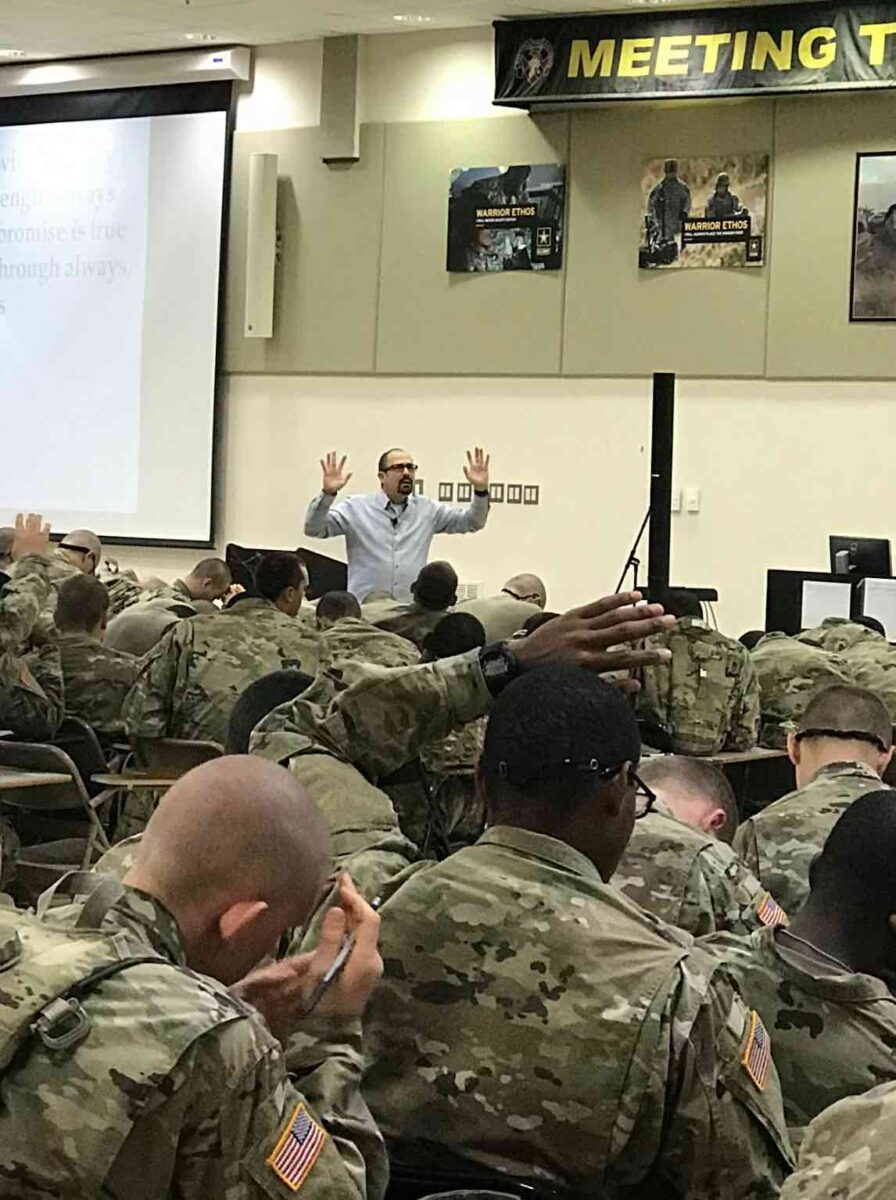
If I want to be a comedian, and I would say I’m a Christian, I better be really good at what I do, because this is what God requires of me, to be a great comedian without having to go to the bars.
So I started going to places where it’s going to be a tough audience. Prison would be a tough audience. How about IRS agents? How about homeless shelters? I want to go where laughter is needed. A lot of times homeless people or people who are hurting or women in a halfway home, those people, life is so hard they don’t have time to go to a comedy club. They can’t afford to go to a comedy club. And this is where my joy is. I want someone in the audience that can’t afford to go to a comedy club, bring their family, and they don’t have to pay for it. To see families together laughing, and then they get to hear the gospel, to me, this is the ultimate joy.
“I started going to places where it’s going to be a tough audience. Prison would be a tough audience. How about IRS agents? How about homeless shelters? I want to go where laughter is needed.” – Nazareth
Jesus Listens, October 27th says:
My great God,
Teach me how to approach problems with a light touch. When my mind moves toward a problem area, I tend to focus on that situation so intensely that I lose sight of You.
I know there is a better way! When a problem starts to overshadow my thoughts, please prompt me to bring the matter to You—talking it over with You and examining it in the Light of Your Presence.
I realize I will always face trouble in this world. But more importantly, I will always have You with me—equipping me to handle whatever I encounter.
In Your brilliant Name, Jesus,
Amen
Narrator: To learn more about Nazareth and to keep up with his comedy, follow him on social media, and check out his website at www.nazarethusa.com.
Stay tuned to Michele Cushatt’s story after a brief message.
Jesus Calling for Easter
The Easter season is filled with joy and hope. Now there’s a new way to focus on the holiday with Jesus Calling for Easter! With 50 Jesus Calling devotions selected just for the Lent and Easter season, Jesus Calling for Easter includes scripture verses alongside breathtaking imagery and exquisite design. Jesus Calling for Easter makes a stunning gift for those who love Jesus Calling and would like a new way to observe the Easter season. To learn more about this beautiful edition of Jesus Calling, please visit jesuscalling.com/books.
Our next guest seemed to be on her way to having a nearly perfect life, until, on a beautiful Thanksgiving holiday, she received the devastating news that she had a very serious health issue. This set off a chain of events that she could have never foreseen. How Michele decided to face her pain has dictated the rest of her life. She now shares how she walked through that suffering to find joy on the other side.
Michele Cushatt: My name is Michele Cushatt. I’m a wife and mom of six kids. My story is one of the significant and consecutive losses over the period of about thirty-plus years.
But that’s forced me to wrestle with what I believe to be true about God, whether He’s real, if He’s good, and whether or not I can trust Him. And so I spend time with people who are in places of deep pain, wrestling through these questions that all of us ask at some point in time about who God is and what really is the meaning of life.
Finally Putting the Family Together and Disaster Strikes
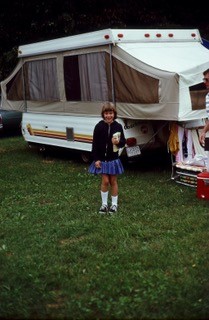
My dream as a young girl was always to be a wife and a mom. However, reality didn’t look quite like the dream did. I got married in my early twenties. I married a pastor. I started full time ministry. It looked like the ideal scenario. And then unexpectedly, six years into that, I watched my husband drive away for the last time, and I became a single mom. That felt like—at that time—it was the worst thing that could ever happen. Can you be divorced and will God still love you? It was horrible. It was such a massive loss. I wrestled through that.
A couple of years later, I met a man at church. We got married and created a blended family, a stepfamily. I had some really difficult experiences in my twenties and early thirties that were not easy and certainly had some wrestling with my faith during that season.
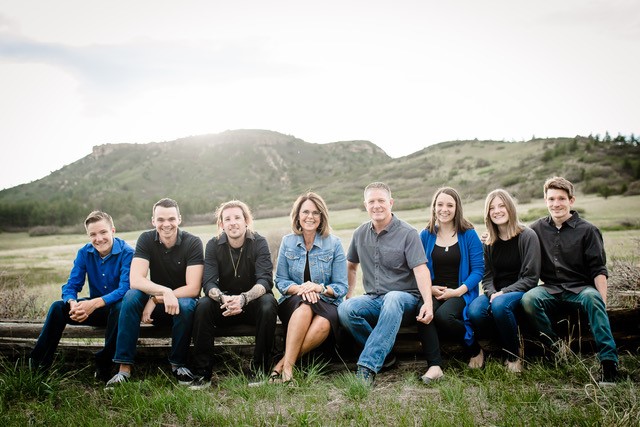
But I had gotten over several humps of these kinds of normal life challenges when on the Tuesday before Thanksgiving—I had kids at home, I’d just sent them off to school for the day. I got a phone call from my doctor. And you see, the week before I had gone to see an ENT doctor, because I had an ulcer on the side of my tongue that wouldn’t heal. He said so many times, he kept saying, “Michele, you have nothing to worry about. It’s fine. I’m not worried at all. But we’re going to go ahead and do a biopsy just in case.”
And so I believed him and didn’t worry until that Tuesday before Thanksgiving. I was getting ready to go out and buy groceries for our Thanksgiving dinner for all of our family and friends. That time was supposed to be a time of joy and celebration and feasting. I found out that I had squamous cell carcinoma of the tongue, cancer of the tongue. Now, I didn’t know something like that even existed. I didn’t know you could get cancer on your tongue. And it didn’t make any sense to me because I was a thirty-nine year old wife and mom who ran half marathons and did triathlons and ate healthy and did all the right things. So how could I do everything right and still end up with this very wrong result? And that was the beginning of a very long and difficult journey through multiple cancer diagnoses.
The Difficult Healing Journey of Cancer
So that initial diagnosis proved to be cancer caught early. A best case scenario, the doctor said, “We got it all. You had nothing to worry about,” except once again they were wrong. And two and a half, three years later it came back for a second time. And then eight months after that, it came back for a third time. And by the third time I had cancer, it was much more aggressive, much more advanced.
They put me in the hospital again on the Tuesday before Thanksgiving, and did a nine-hour surgery where they removed two thirds of my tongue. In addition, they had to cut open my neck and remove multiple lymph nodes, blood vessels, everything to try to rebuild my mouth so I could function as a human being. They also cut open my arm from wrist to elbow, again, trying to rebuild my neck and my mouth and everything and my leg as well. So I was kind of like Humpty Dumpty. They literally just took me apart and then had to put me back together again. And then after giving me a few days in the ICU and allowing me about four weeks to recover from that surgery, they started the intense external radiation and chemotherapy treatment.
By the time all was said and done, I had third degree burns from my nose to chest. I had a feeding tube for six months. I had the tracheostomy for almost two months. I had scars on every part of my body. My vocal cords were so burned, I wasn’t sure I’d ever be able to speak again at all. The doctors told me clearly, “We threw everything but the kitchen sink at you in the hopes of maybe saving your life.” But in the process, I almost died.
“The doctors told me clearly, ‘We threw everything but the kitchen sink at you in the hopes of maybe saving your life.’ But in the process, I almost died.“ – Michele Cushatt
Honestly I didn’t know a human being could endure that much physical suffering and still survive. Tongue cancer is one of the most severe experiences from a cancer diagnosis perspective, because the treatment is so brutal and it impacts a very sensitive part of your body. It’s a very tender area and the pain is so extreme that they also have to treat it with very extreme pain meds to keep you from going into shock and dying from the pain itself.
“Honestly I didn’t know a human being could endure that much physical suffering and still survive.” – Michele Cushatt
I’m living now with a skin graft for a tongue. It’s a miracle I can speak it all, quite frankly. But I will always speak with a lisp. I will always sound different. On top of that, I have the ongoing physical disability of having to struggle through eating and drinking, which is something we do multiple times a day. And on top of that, speaking is painful. And how do you and I connect in relationship but through communication?
And not only was it physical suffering, but there was the spiritual and emotional suffering of that much physical pain and suffering and the reality that for years, I had prayed for healing and yet cancer kept coming back. And what do I do with God when I did everything right and made the right choices? I avoided the bad things, I did the good things, and I prayed. And so what do you do with your faith in a God who doesn’t always behave the way that you expect Him to?
“What do you do with your faith in a God who doesn’t always behave the way that you expect Him to?” – Michele Cushatt
Trusting God Through the Pain
I have asked the question why for years, Why God? Why? Why didn’t you do something? Why didn’t you solve this? Why did I have to have cancer three times? Why did my children have to endure that suffering in the early years of their life? And I can go on and on and on. Part of what we need to do is reevaluate, or at least question whether our definition of what is “good” and “bad,” are really ultimate and accurate.
For example, let’s think about Jesus crucified. The crucifixion was the worst way for someone to die. It was utter humiliation. The cross was the sign of a curse, right? It was the worst possible thing. And I have no doubt the disciples were like, “What the heck? This is not what’s supposed to happen. This is not how this story’s supposed to end. Jesus is supposed to be King.” The very thing that they thought was their devastation was the means of their salvation.
He takes the things that look like our biggest devastation and somehow, by some miracle of grace, He goes, “I know you think this is going to destroy you. I’m actually going to use it to save you. And you will not be able to believe what I will do, even if I told you so. You’re just going to have to trust me.”
“He takes the things that look like our biggest devastation and somehow, by some miracle of grace, He goes, ‘I know you think this is going to destroy you. I’m actually going to use it to save you.’” – Michele Cushatt
If you would have been with me during that season, I looked like I was the walking dead. How could any good come from that? And again, I hope I never have to go through that again. At the same time, I cannot deny how many sweet moments and sweet conversations and sweet experiences and relationships have come not in spite of my suffering, but as a direct result of it. Jesus’s crucifixion, as awful as it was, was God’s ultimate triumph.
“I cannot deny how many sweet moments and sweet conversations and sweet experiences and relationships have come not in spite of my suffering, but as a direct result of it.” – Michele Cushatt
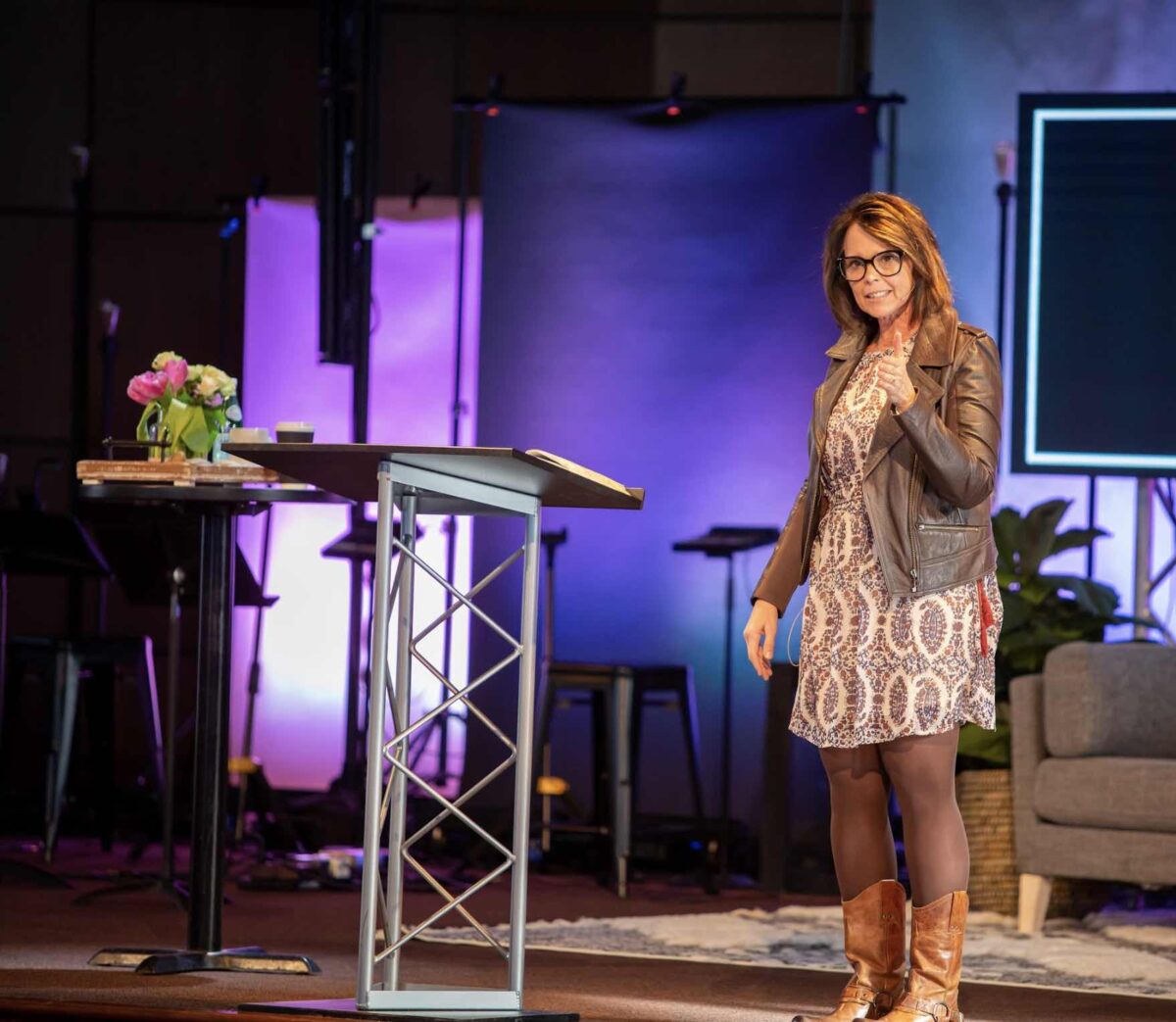
I have found in my years of suffering that as a church, as a whole, we don’t do a great job at times of allowing people space to grieve. And yet the Bible is packed full of examples of the worth of lamenting. The practice of lament is very simply allowing yourself to give voice to your grief and sadness, to name it, to speak it, to acknowledge it. And rather than be someone who stuffs your sadness and plasters on a happy face because you think that’s what praise looks like, it’s understanding that lament is as much a part of worship as praise is. That we’re just telling the truth about our pain. But at the same time, we’re acknowledging that we still have hope in the Savior, that both can be true at the same time.
“Lament is as much a part of worship as praise is.” – Michele Cushatt
There was one day during the middle of my treatment, during my third cancer diagnosis, where I was really suffering. My pain levels were very, very high. No matter how I tried to treat it with medication and rest and other things, it was a ten on the pain scale, unbearable. And I remember reaching out to a few online friends to ask them for prayer, right? I said, “I’m really struggling.” And the vast majority said, “We’re with you. You’re not alone. We’re praying for you right now.”
But one woman said, “Oh, come on, Michele, it’s not all that bad. You’re not in a wheelchair. At least you can walk.” I want to give her the benefit of the doubt. But what she did in that moment is she added shame to my suffering. When you are walking along with someone whose faith is failing, who’s really struggling, telling them how bad or wrong they are for feeling the way they do does nothing to help them—don’t tell them how it could be so much worse. And don’t talk more than they do. Like preaching, prodding, guilting, shaming, those things don’t work.
Instead, remember that our goal is to be the hands and feet of Jesus in the place of suffering. That means we don’t talk them out of their suffering. We instead join them in it. Always start with empathy. One of my favorite phrases to say to somebody who’s hurting is simply, “I am so sorry for your suffering. I can do whatever you need. My goal is to be with you.” Those kinds of things are ways that we embody the gospel to somebody who is wrestling with their faith.
How Jesus Calling Helped Her Hang On
Even if you have nothing to give, God still has everything to give you. He didn’t come and save you because you were so strong and faithful. He came and saved you because He loves you, and that’s enough. And that means even if you can’t do anything but say, “Help,” He’s there.
“Even if you have nothing to give, God still has everything to give you. He didn’t come and save you because you were so strong and faithful. He came and saved you because He loves you, and that’s enough.“ – Michele Cushatt
Wrestling with our faith is understanding that God’s love for us is undeserved. It’s already given. The reality is when we’re drowning, we don’t have the energy or the time or even the strength to do hours and hours of faith building practices. We need something small. For example, sometimes I was so sick that all I could do was lay on the couch. And like I said before, I’d say, “Jesus, help, I can’t do this. Jesus, help.” And you know, during that time, one of my resources was Jesus Calling. I can’t tell you how many days I opened up the reading for that day and what it said was exactly what I needed. God uses different resources and different people to be His hands and feet to somebody who’s suffering. And that’s what Jesus Calling did for me.
Jesus Listens, September 24th:
Beloved Lord Jesus,
In this age of independence, it’s countercultural as well as counterintuitive to acknowledge my neediness. However, You have taken me along a path that has highlighted my need for You—placing me in situations where my strengths were irrelevant and my weaknesses were glaringly evident.
You’ve been teaching me to thank You for hard times and difficult journeys—trusting that, through them, You accomplish Your best work. And I’m learning that needing You is the key to knowing You intimately, which is the gift above all gifts!
In Your incomparable Name,
Amen
Narrator: You can find Michele’s book, A Faith That Will Not Fail: 10 Practices to Build up Your Faith when Your World is Falling Apart, anywhere you buy your books.
If you’d like to hear more stories about finding joy after pain, check out our interview with Tammy Bullock.
Next week: Andrea Bocelli

Next time on the Jesus Calling Podcast, we’ll hear from iconic, world-renowned tenor Andrea Bocelli, who joins us to share his story of faith in his native tongue of Italian, with help from an English translator.
Andrea Bocelli: Well, the love I have for my family has never been damaged by my success and career, never. I’ve never lost any second to get back home, to be with my children, and so on. Of course my career might put at risk my faith, because there are moments when it’s easy to feel high and important, aren’t there? I must say that faith has always been very important to me to keep myself down to earth, to remember that everything I’ve done wasn’t my merit, but a gift from God. I’ve always thought so.
